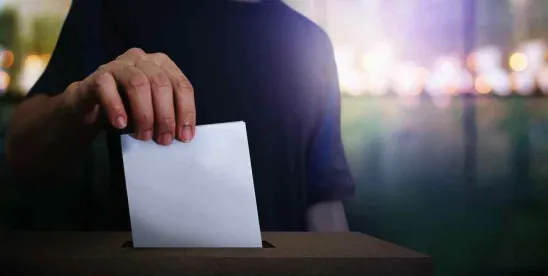The U.S. Court of Appeals for the Second Circuit recently upheld a 2022 New York State law prohibiting the use of the word “Independent” or “Independence” in the name of a political party. New York’s ban on the use of “Independent” or “Independence” in a party’s name was previously upheld by a U.S. District Court Judge. The challenge to this law came from a candidate for New York City Mayor who has since ended his candidacy to be the Big Apple’s chief executive.
The Second Circuit held that the ban does not impose a severe burden on the candidate’s free speech and free association rights. The panel also held that New York State’s stated justification for the law – that the use of “Independent” or “Independence” by parties is confusing to voters – is reasonable and justified. On the panel that upheld the New York State law were two appointees of President Biden and one appointee of President Obama; the Second Circuit panel’s decision was unanimous.
New York State’s prohibition on the use of “Independent” or “Independence” in party names was approved by each house of the state legislature in 2022 on party-line votes, with Democrats in each house voting for the measure and Republicans voting against it. The proposal previously passed the State Senate in 2021, but it was not brought to the Assembly floor for a vote that year.
The law at issue added the words “Independent” and “Independence” to an already lengthy list of words prohibited by the Election Law to be used by political parties in their names. Prior to the enactment of this law, the Election Law prohibited political parties from using words such as “America,” “United States,” and “New York State” in the name of political parties. These prohibitions also applied to independent bodies, political entities that run candidates for public office but have not yet achieved party status under New York law.
Critics of the law argued that it unfairly targeted the Independence Party, an influential minor party that existed in New York State from 1995 to 2020. The Independence Party achieved party status at the 1994 General Election when its candidate for Governor, Thomas Golisano, received the required 50,000 votes necessary for a party to achieve party status. From 1994 through 2018, the Independence Party’s candidates for New York State Governor received the statutorily-required 50,000 votes, and the party maintained its status as an official party.
But in 2020, the Election Law was amended to alter the party qualification requirements. Under the new provisions, parties achieved or maintained party status only if their candidates for governor or president received 130,000 votes or 2% of the total vote for that office, whichever was greater. At the 2020 General Election, Brock Pierce, the Independence Party’s candidate for president, only received 22,656 votes, falling far short of the new threshold for parties to qualify.
Two years later, the Independence Party attempted to qualify to run a candidate for governor as an independent body. As it was no longer a recognized political party at this time, its candidates for statewide office – including governor – could only gain a spot on the General Election ballot by petitioning onto the ballot through an independent nominating petition. The Independence Party’s statewide independent nominating petition, however, did not contain enough valid signatures and was invalidated.
Because of the 2022 law and the recent Second Circuit decision, any future efforts to revive the Independence Party are likely to be unsuccessful. Those involved in campaigns should be aware that “Independence,” “Independent,” as well as a number of other words, are prohibited from being used in the name of a political party in New York State.
The Second Circuit decision serves as a stark reminder that navigating the notoriously complex New York State Election Law is an important part of any campaign in the Empire State. From prohibited party names to signature requirements and filing deadlines, the Election Law contains countless traps that can derail even the most well-organized campaigns and confuse even the most seasoned politicos. Candidates cannot rely on an opponent’s inexperience or hope that their own legal slipups will go unnoticed. Early and ongoing legal guidance is critical to keeping a campaign on track. Savvy candidates, party leaders, political consultants, and campaign operatives would be wise to seek legal advice early in any election cycle.




 />i
/>i

